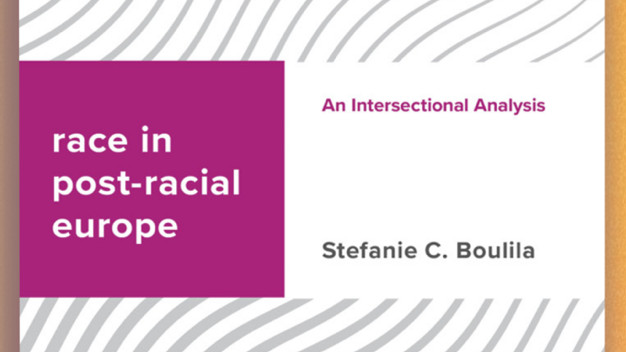Intersections between Post-Feminism and Post-Racialism
Intersections between Post-Feminism and Post-Racialism
LIN8
March 14th, 2023

Post-imaginaries, such as post-racialism and post-feminism, maintain inequalities through the claim of being beyond them. When used to signal a ‘breaking with’ the past, the prefix “post-“ suggests a linear time progression that is marked by ‘overcoming’ the discursive or social conditions that demarcate the past. Hereby, the prefix ‘post’ does not act as a neutral descriptor but as a productive imaginary of that respective past as well as of the present and the future.
When Europe is claimed as post-racial or post-feminist, both articulations mobilise a shared temporal logic of progress and with that, a shared discursive archive. They are so powerful today because they are indebted to the temporal and spatial logics that are much older. If we contend that Europe is performative, produced through the archives of colonialism, imperialism and modernity, the power to define what has been left behind is a key logic in the demarcation of Europe. Europe was placed in time and space, at the forefront of a teleological understanding of world history, through notions of anachronistic space and panoptical time (McClintock 1995). Post-imaginaries cite those universalising visions of linear progress.
The aim of this paper is to introduce post-imaginaries as an analytical notion to study Europe’s place in time and space from an intersectional perspective. By exposing the spatial and temporal logics of post-imaginaries as well as their historical roots, we can contest Europe’s identity as the cradle of equality. This allows us to re-focus on what is not told in dominant accounts of Europe and provide an explanatory framework for continuing racisms and so-called backlashes against feminism.
Bio
Stefanie Boulila is a lecturer and head of research at the Institute of Sociocultural Community Development at Lucerne University of Applied Sciences and Arts (HSLU) and a member of the Swiss Young Academy. She is co-investigator on the Horizon Europe project “RESIST - Fostering Queer Feminist Intersectional Resistances against Transnational Anti-Gender Politics”. Her transdisciplinary work has engaged with race and racism in Europe, cultural politics, intersectionality, gender and LGBTIQ equalities beyond liberal rights. In 2019, Stefanie published her monograph ‘Race in Post-racial Europe: An Intersectional Analysis’ (Rowman & Littlefield International). In 2021, Stefanie received an Emma Goldman Award for her contribution to feminist research in Europe.